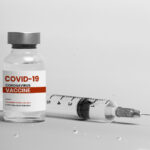Sleep is amazing, and few things compare to a restful night’s sleep. Your body makes good use of sleep, using it to strengthen your immune system, process information, and recharge before a new day begins. When you don’t get enough sleep, all of your bodily functions and more are thrown off.
Sleep is crucial, and failing to obtain enough on a regular basis can lead to problems. So, how many hours should you plan on spending? Adults need 7 to 9 hours of sleep per night on average to function well. You may increase your risk of certain diseases, diabetes, and even vehicle accidents if you don’t have enough sleep.
How Much Sleep Is Required Daily?
According to the National Sleep Foundation, you can set a specific sleep goal for yourself based on your age. Below we have tried to explain the sleep requirements for every age group.
- Adults are aged 65 and up 7 to 8 hours.
- Adults aged 26 to 64: 7 to 9 hours
- Young adults (18–25 years old): 7–9 hours.
- Teenagers between 13 and 17 years old: 8 to 10 hours
- Children aged 6 to 12 years old: 9 to 11 hours.
- Children aged 3 to 5 years old: 10 to 13 hours.
- 11 to 14 hours for toddlers aged 1 to 2 years.
- 12 to 15 hours for infants aged 4 to 11 months.
- 14 to 17 hours for newborns aged 0 to 3 months
What Happens When You Don’t Get Enough Sleep?
Feeling Sick
Sleep deprivation might weaken your body and its ability to fight sickness. It is, therefore, easier to become ill as a result of this. Researchers have even discovered a link between sleep and your immune system. If you get sick and haven’t had enough sleep, you may lose more sleep as your body fights the infection.
Weakened Immune System
Consider your immune system to be an army that is always ready to defend you against infection and disease. Your immune system, like an army, needs time to develop its defenses. When you sleep, your immune system swings into high gear and prepares to combat infection by producing chemicals (such as antibodies and cytokines).
Sleep deprivation damages your immune system by preventing it from producing enough protection. And when your immune system’s defenses are compromised, you’re more likely to become ill. When you don’t get enough sleep, it takes longer to rejuvenate.
Respiratory Issue
To stay healthy, your respiratory system relies on good sleep and vice versa. However, several diseases and disorders obstruct this symbiotic interaction. Obstructive sleep apnea (OSA) is a respiratory problem that affects the quality of your sleep by interrupting your tranquil Zzzs. Sleep deprivation might occur if you wake up frequently throughout the night due to OSA.
If you don’t get enough sleep, it can make you more susceptible to respiratory infections such as the flu or the common cold and make existing respiratory disorders worse.
Heart Problems
When it comes to heart health, both less and too much sleep can be detrimental to your cardiovascular health. Heart disease, stroke, and heart attacks have all been related to getting less than 5 hours or more than 9 hours of sleep per night.
Increased Diabetes Risk
Lack of sleep also hinders your body from producing enough insulin, a hormone that helps to reduce blood sugar levels. Your blood sugar levels may jump, as a result, increasing your chance of developing type 2 diabetes. Researchers determined in a 2015 assessment of studies that 7 to 8 hours of sleep is optimum for maintaining a healthy insulin level.
Impact On Your Memory And Learning
The inability to remember things goes hand in hand with the inability to think clearly. Sleep has a significant impact on your memory and learning ability. Sleep aids in the “locking in” of information in your brain, allowing you to store and access it as needed. Sleep helps you stay alert and prepared for your next (presumably virtual) trivia night!
Obesity And Weight Gain
While it’s OK to have a late-night snack now and again, sleep deprivation can lead nighttime munchies to become a habit. Sleep deprivation affects the generation of hunger and fullness hormones in the brain. Lack of sleep causes a leptin drop (the hormone that tells your brain you’re full) and a rise in ghrelin (the hormone that makes you hungry), leading to pre-bedtime snacking.
Lack of sleep has also been linked to insulin resistance, lowering your body with glucose tolerance (aka sugars).
Skin Issue
It’s not called “beauty sleep” for no reason. Your skin will suffer if you don’t get enough sleep. Women who didn’t get enough good-quality sleep exhibited more pronounced indicators of skin aging and impaired skin barrier function, according to a small 2015 study financed by the Estee Lauder Companies. To fully comprehend how sleep affects the skin, more research is required.
Mood Changes
Sleep deprivation can have a negative impact on your mental and emotional health, making you more prone to mood swings and paranoia. Sleep deprivation, if left untreated, might cause you to see or hear things that aren’t there (aka hallucinations). Not getting enough sleep might increase specific symptoms or behaviors in people with certain mental health issues.
Risk Of Accidents
Getting behind the wheel when you’ve only had a few hours of sleep can be dangerous. People who sleep 6 hours or less per night are more likely to be involved in a car collision than those who sleep 7 to 10 hours. With each hour of sleep lost, the danger increases.
If you work long hours, are a shift worker or a commercial driver, or travel frequently, this might be highly problematic. Lack of sleep can also damage your balance and coordination, making you more prone to falling, bumping into items, and other physical mishaps.
Concluding Thoughts!!
Is your sleeping pattern still off? It’s time to see your doctor if you’re still having trouble sleeping or if you’re feeling chronic weariness during the day. They can work with you to identify the source of the problem and develop a treatment plan to help you get some rest.





 Is the Covid- 19 Vaccine Safe?
Is the Covid- 19 Vaccine Safe?